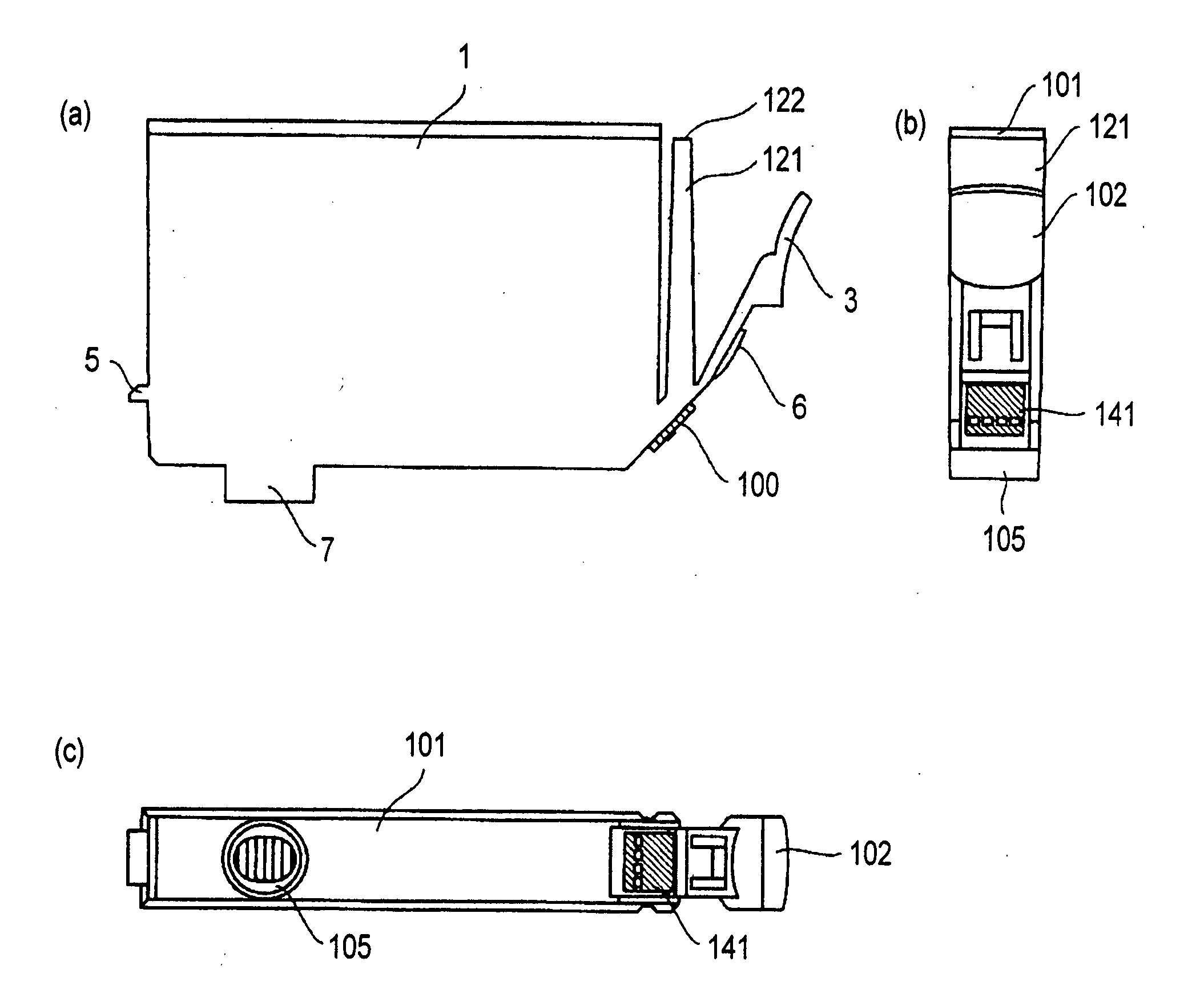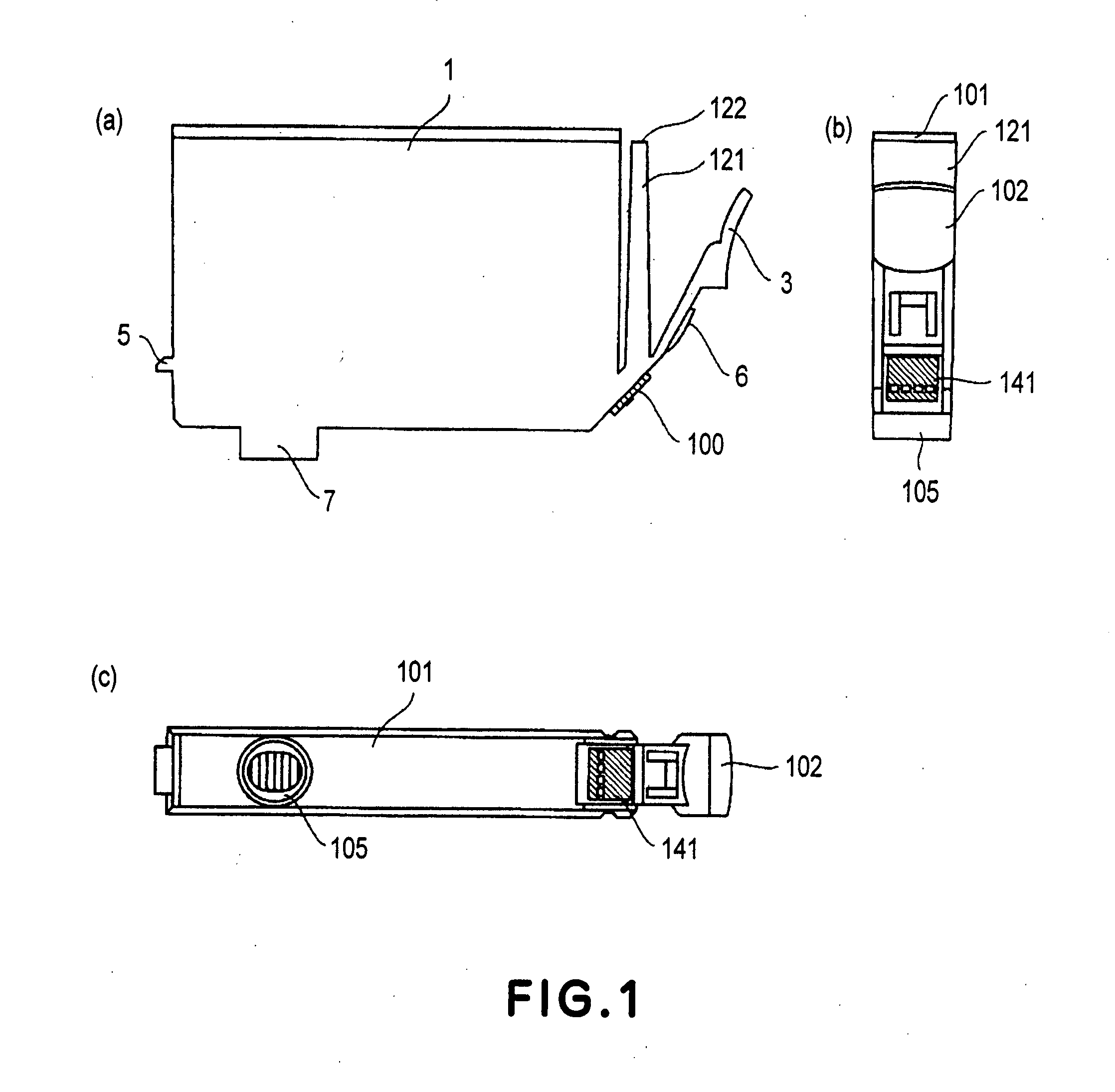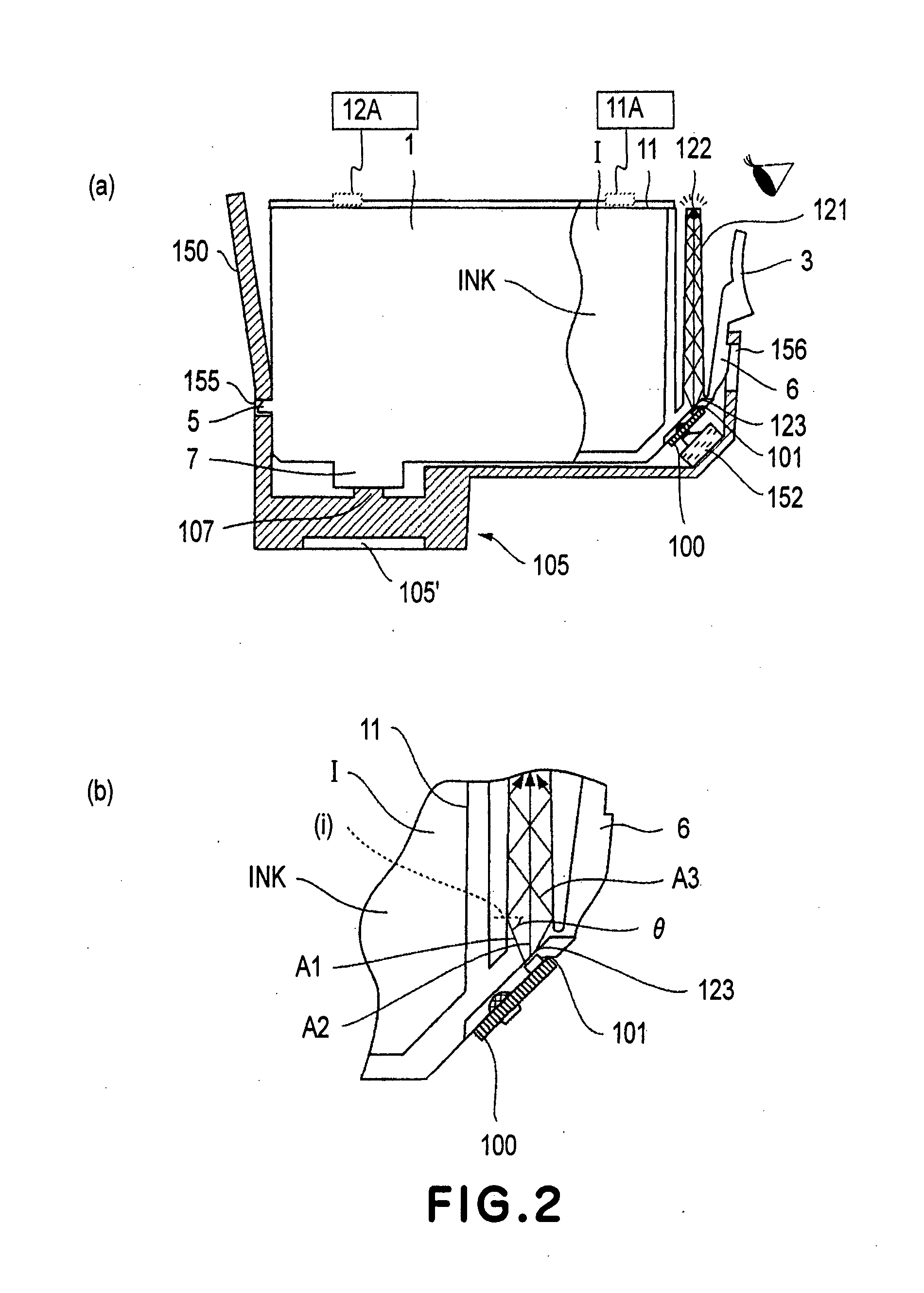Whether an ink jet recording apparatus is structured so that an ink container is inseparably attached to a
recording head, or it is structured so that an ink container is removably attached to a
recording head, the positioning of an ink container relative to a recording head, or positioning of a recording head unit, that is, the integral combination of a recording head and an ink container, relative to a relevant member (for example,
carriage of serial type recording apparatus, reciprocally movable in primary scanning direction) of the main
assembly of a recording apparatus, is one of the most important issues related to recording quality.
In the case of non-PC recording, this is not possible, and therefore, it would be considered to provide the printer (main
assembly) with a computer display in which the information can appear.
However, the provision of such a
display device increases cost of the printer and upsizes the printer, and in addition, design or the like of the printer is influenced, and therefore, the provision of the
display device is not always desirable.
Even if the
display device is provided, it is not always assured that user immediately and clearly recognize the state of the ink container.
That is, if the latching lever of the ink container and the
electrical contacts of the holder are not equal in resiliency, for example, if the
contact pressure of the
electrical contacts is greater than the force generated by the resiliency of the latching lever, the latching lever is excessively deformed, failing thereby to keep the ink container in the predetermined position in terms of the direction in which the force generated by the latching lever acts on the ink container.
Therefore, it is possible that the ink passage on the ink container side and the ink passage on the recording head side become misaligned at the joint, preventing thereby ink from being properly supplied, and / or allowing ink to leak from the joint.
However, electrical contacts are
electrically conductive members formed of relatively rigid metallic substance, and therefore, applying a large amount of pressure to electrical contacts, and / or causing electrical contacts to slide on each other while applying a large amount of pressure, in order to ensure that the electrical contacts of an ink container and the electrical contacts of the main
assembly remain satisfactorily connected in terms of electrical
conductivity is unwise from the standpoint of the prevention of the damage to the electrical contacts and the durability of the electrical contacts.
Thus, it is unwise to adopt the technologies disclosed in Japanese Laid open
Patent Application 2 178050 without any modification.
In particular, in the case that an ink container is removably attachable to a recording head, there is the possibility that when an ink container is attached or removed, the tip of the ink outlet of the ink container will come into contact with the electrical contacts of the main assembly, and wets them.
Further, should ink leak from the joint between the ink outlet of the ink container and the ink inlet of the main assembly during the mounting of the ink container, it is very likely that the ink having leaked from the joint will reach the electrical contacts, because the electrical contacts are attached to the bottom surface of the ink container.
However, since the PC plate includes electrical connecting portion for electrical communication with the main assembly of the printer, the
latitude of the arrangement is small.
However, doing so increases the cost.
If the structure disclosed in Japanese Laid-open
Patent Application Hei 8-58107 is incorporated in a printer which carries a plurality of independent ink containers for the respective colors, the structure for mounting the ink container to the printer is limited, and therefore, the substantive capacity of the ink container has to be reduced, or the printer has to be upsized.
However, it does not disclose a preferable structure for supplying the
electric power or the
signal to the ink warning lamp.
From FIG. 6-FIG. 8, a lead wire connecting the ink jet recording apparatus and the ink warning lamp is suggested, but a number of wiring leads corresponding to the number of ink warning lamps are necessitated with the result of complicated wiring and therefore cost increase, and in addition, the wiring lead and the connecting portion will deteriorate the easy observation.
However, there is no disclosure about the
electric power supply method to the ink warning lamp.
These problems are more significant recently as a result of the downsizing and the multi-function tendency.
Particularly in the case of a multi-function printer in which a
scanner is placed at the top of the printer, the position for the display is more limited.
If, for example, the ink container is mounted on a wrong position, there is a liability that small ink remaining amount is displayed for another ink container which contains a sufficient amount of the ink.
However, in such a case, it is required that ink containers having configurations depending on the colors of the ink to contain with the result of
disadvantage in the manufacturing cost which is more significant with the increase of the number of the colors of the ink.
 Login to View More
Login to View More  Login to View More
Login to View More 


